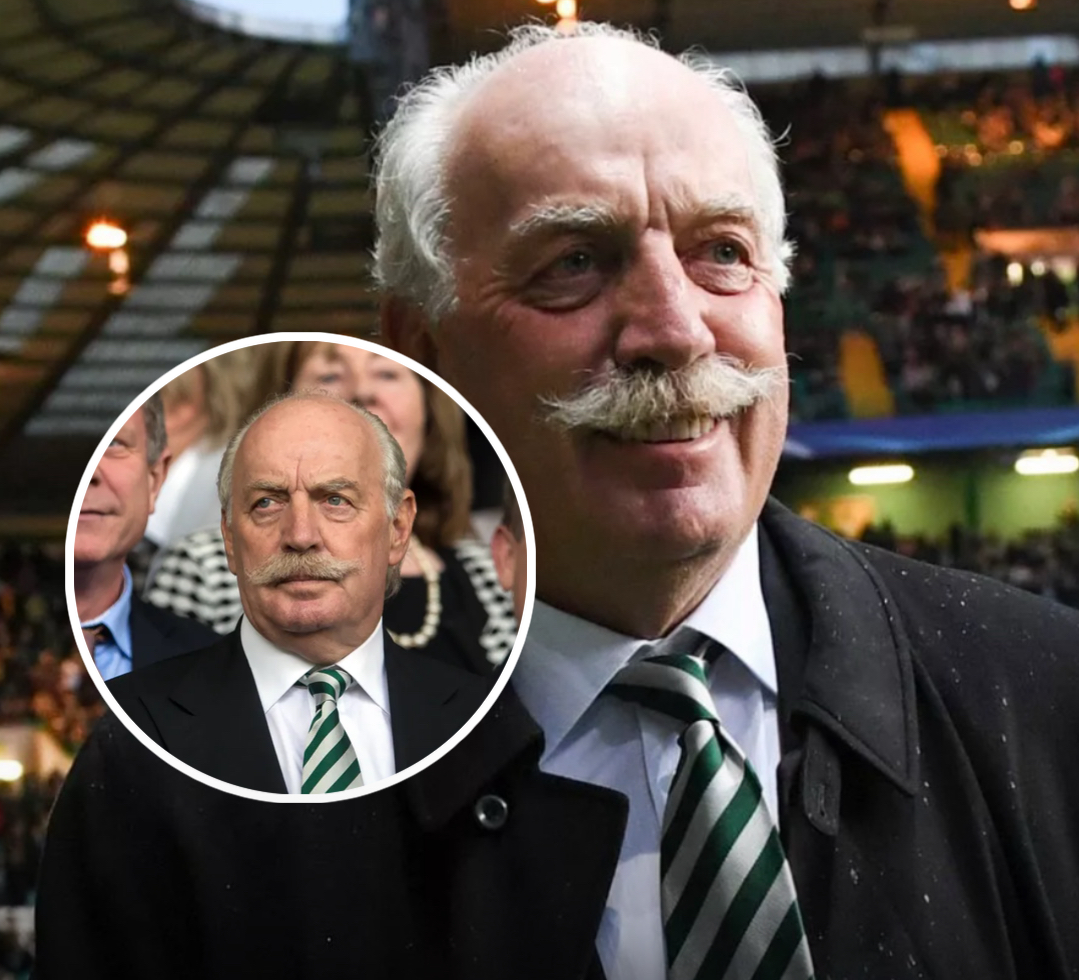CELTIC DROP HUGE APPOINTMENT HINT IN LATEST CLUB ANNOUNCEMENT, IT CAME COMPLETELY OUT OF NOWHERE
In one of the most startling developments in recent Scottish football, Celtic have not only accepted the resignation of their manager Brendan Rodgers, but have also dropped what many are interpreting as a huge hint at a major appointment lurking behind the scenes. While the club has only publicly confirmed interim bosses, the wording and timing of their announcement suggest deeper strategic plotting.
Celtic’s decision to part ways with Brendan Rodgers comes amid a poor start to the 2025-26 campaign. After a damaging 3-1 defeat away to Heart of Midlothian that left them eight points behind the league leaders, Rodgers tendered his resignation which the club accepted with immediate effect.
In the club’s statement, Celtic acknowledged Rodgers’ contribution over his two spells at the club — but also referred to the “process to appoint a new permanent manager [being] underway”.
They also confirmed that legendary former manager will take charge on an interim basis, assisted by former player and coach Shaun Maloney.
So far, fairly standard in a managerial change. But it’s what came next — the appointment hint — that has truly grabbed attention.
The Huge Hint: A Behind-the-Scenes Appointment Announcement
While the focus has naturally been on the managerial change, Celtic quietly released an announcement that has flown under many radars: the club has engaged an executive recruitment firm, FWB, to seek a new Head of Business Operations — a role with significant responsibility over everything from retail & ticketing to hospitality, stadium services and the supporter experience.
Key lines in that announcement:
- The role will take charge of “everything from retail and ticketing to hospitality, stadium services, and the overall supporter experience.”
- The timing: this landed just as the manager’s exit was unfolding, giving the impression the club is not simply working on the pitch but also reconfiguring off it.
For many observers, this move signals more than an operational restructure: it suggests Celtic believe the problem is not only the manager or the players, but the broader club infrastructure. And in doing so they may be hinting at a major appointment forthcoming — either in the managerial role or in the football-operations chain that will support the next era.
Why the Hint Matters — And Why It’s Surprising
There are several reasons why this announcement stands out:
1. Unusual Timing
Most clubs focus solely on the footballing side — the manager, the players — when making a high-profile change. Celtic’s decision to simultaneously advertise a senior business-ops role sends a very strong message: the club sees structural issues not just tactical ones.
2. Scope of the Role
“Head of Business Operations” is a big title. Having one person oversee retail, ticketing, hospitality, stadium services and supporter experience suggests a shift to centralise many functions that may previously have been more fragmented. This indicates Celtic are thinking long-term — beyond just winning the next game.
3. Possible Signal to Managerial Candidates
In the world of elite football, high-profile managers often ask: “What’s the club behind me like?” A club that is actively professionalising non-playing areas may appear more attractive. This hint could be seen as Celtic’s attempt to sweeten the pot for top managerial candidates.
4. Fan Relations Element
With supporters growing frustrated by inconsistent transfer policy, opaque communication and declining performances, this appointment shows Celtic are aware that the club must repair trust with fans. Change in business operations isn’t glamorous, but it matters.
As one supporter wrote:
“Time to give them all the support we can, now more than ever …”
It’s a recognition that the issues are wider than the 11 on the pitch.
What’s Next? Scenarios for the Managerial Appointment
Given Rodgers’ exit, the interim appointment of O’Neill/Maloney and the behind-the-scenes ops hire, what could Celtic be planning? Here are a few likely scenarios:
A. Return of a Popular Former Manager
One of the leading voices in recent media commentary is that Celtic could bring back Ange Postecoglou, who previously managed the club to multiple trophies. If the business operations hire signals ambition, a big name like Postecoglou could make sense.
B. Appointment of a Younger, Modern Manager
The club’s announcement hinted at modernisation, which may point to a next-gen coach skilled in data, operations and modern culture rather than simply old-school tactics. The ops hire could be part of building that broader ecosystem.
C. Football Director Model First, Manager Later
Some clubs invert the order: hire a football operations director first, then a head coach who reports to them. Celtic’s ops hire might be the first step of such a model: restructure off-pitch architecture, then appoint the coach within that framework.
D. Internal Promotion + Focus on Stability
Given O’Neill and Maloney are interim, another path is a lower-profile permanent appointment, but backed by significant structural support via the business operations hire — signalling “steady recovery, not gamble”.
Why Rodgers’ Exit Was Not Entirely Unexpected
Although the timing felt sudden, a closer look reveals the departure had signs. Key reasons include:
- Poor start to the season: Celtic failed to make the group stages of the Champions League, and began 2025-26 poorly.
- Public discontent: Rodgers had publicly flagged concerns about recruitment and the board’s ambition. For example: “There has to be ambition from everyone” he said in August.
- Friction with the board: The club’s majority shareholder, Dermot Desmond, issued a critical statement after Rodgers’ exit accusing him of contributing to a “toxic atmosphere” and of public criticisms of club policy.
In short: while few expected the resignation at that moment, the underlying cracks had been appearing for some time.
Potential Risks and Challenges for Celtic
While the appointment hint is promising, there are risks:
- High Expectations: Fans will expect that the new ops structure + new manager = immediate turnaround. If results don’t improve, the board will be under pressure.
- Recruitment Dilemmas: The previous regime struggled with recruitment perception. The new structure must prove it can attract and deliver talent.
- Managerial Fit: If Celtic swing for a high-profile name but fail to appoint someone aligned with the club’s culture and supporter base, they risk alienating both fans and players.
- Interim Period: The gap between Rodgers’ departure and the permanent appointment must be managed carefully — O’Neill is interim, but stability must be maintained during the transition.
What This Means for Celtic Supporters
For the supporters of the Hoops, here’s what the announcement likely signals:
- The board recognises that something more than on-pitch issues is at play. They are attempting structural reform.
- Supporters have reason for optimism — not just a new coach but a revamped club infrastructure.
- But they’ll also be looking for proof: clearer communication, improved recruitment, better game-day experiences and restored legacy momentum.
- The coming weeks and months should be watched closely: hire of operations head, announcement of new manager, any shift in recruitment or club messaging — each will matter.
Conclusion
The departure of Brendan Rodgers from Celtic marks a turning point. Yet the more compelling story may lie in the club’s strategic hint that the change is not simply about the manager — it’s about building a new foundation. The surprise announcement of the Head of Business Operations search suggests the club is reshaping its ecosystem from the ground up.
If executed well, this could be the beginning of a new chapter at Celtic — one that aligns on-field ambition with off-field structure and supporter engagement. If mishandled, however, the risk is high that the club will slip further behind rivals and fan frustration will deepen.
For now, fans should allow themselves cautious optimism: the message has been sent. The question is whether Celtic can deliver on it.








Post Comment